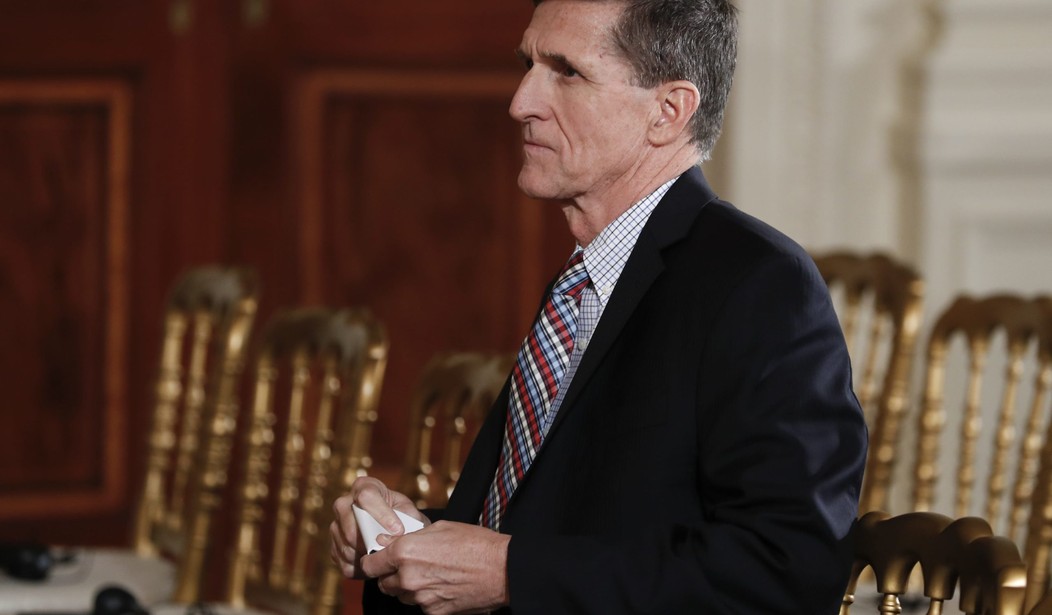WASHINGTON — After former National Security Advisor Michael Flynn’s attorneys argued that the FBI acted improperly by not warning Flynn it was a crime to lie to federal investigators, special counsel Robert Mueller today released the redacted FBI memo from their Jan. 24, 2017, interview.
Two day later, then-Deputy Attorney General Sally Yates went to 1600 Pennsylvania Ave. to speak with then-White House Counsel Don McGahn about concerns Flynn had been compromised by the Russians.
Flynn’s attorneys argued in a sentencing memo last week that he should get no jail time when sentenced Tuesday. He pleaded guilty to lying to federal investigators on Dec. 1, 2017.
The original court filing, which indicated he was working with special counsel investigators, said he “falsely stated and represented” to FBI agents that while working on the Trump transition team on Dec. 29, 2016, he “did not ask the government of Russia’s ambassador to the United States to refrain from escalating the situation in response to sanctions that the United States had imposed against Russia that same day,” along with Flynn telling investigators he “did not recall the Russian Ambassador subsequently telling him that Russia had chosen to moderate its response to those sanctions as a result of his request.” Flynn lied multiple times on multiple occasions, the special counsel said.
Flynn’s attorneys are asking for not more than a year of probation, “minimal conditions of supervision,” and 200 hours of community service. Mueller has requested not more than 6 months behind bars because of Flynn’s “substantial assistance” in the Russia probe.
“As the government has made clear, his cooperation was not grudging or delayed. Rather, it preceded his guilty plea or any threatened indictment and began very shortly after he was first contacted for assistance by the Special Counsel’s Office,” Flynn’s attorneys wrote, describing Flynn’s meeting with FBI agents and noting he wasn’t advised that lying to the FBI was a crime. “…General Flynn’s case differs from that of Alexander Van der Zwaan, who pled guilty to lying to the Special Counsel and failing to produce requested documents. Unlike General Flynn, Mr. Van der Zwaan is a trained attorney who was represented by counsel during the interview; he was interviewed at a time when there was a publicly disclosed, full-bore investigation regarding Russian interference in the 2016 election; and he was given a warning that it is a federal crime to lie during the interview.”
The January 2017 memo released today by Mueller describes then-Deputy Assistant Director Peter Strzok and an agent whose name is redacted visiting Flynn at his White House office, advising him of “the nature of the interview,” and getting his statements on the communications he had with Russian officials.
Heavily redacted parts of the memo include a section that begins with Flynn describing his post-DIA work with media entities including Kremlin-funded Russia Today, a section after Flynn said he told Russian Ambassador Sergey Kislyak that he didn’t know if Donald Trump and Vladimir Putin would get along, and several blocks of text related to a meeting that Flynn said Kisylak asked him to set up shortly after Christmas 2016.
“The interviewing agents asked Flynn if he had any other text, email, or personal meetings with Kislyak or other Russians,” the memo states. “Flynn volunteered that after the election, he had a closed door meeting with Kislyak.” The rest of the text in the paragraph is redacted.
The memo details Flynn’s responses to agents asking him about discussing a UN vote on Israeli settlements with Kislyak and about the Obama administration’s expulsion of 35 Russian diplomats in response to the campaign hacking operation and whether there were talks with the incoming Trump administration that led Russia to moderate its response. “With regard to the scope of the Russian who were expelled, Flynn said he did not understand it,” the memo states. “Flynn stated he could understand one [persona non-grata], but not thirty-five.”
“Flynn stated it was possible that talked to Kislyak on the issue, but if he did, he did not remember doing so… Flynn stated he did not have a long drawn out discussion with Kislyak where he would have asked him to ‘don’t do something.”
Mueller noted in the court filing regarding the release of the memo that “during the interview, the FBI agents gave the defendant multiple opportunities to correct his false statements by revisiting key questions.”









Join the conversation as a VIP Member